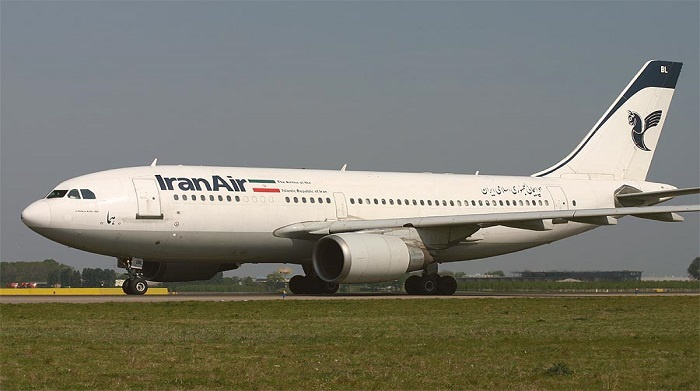Airplane Mode

Hessam Emami
After the implementation of the Joint Comprehensive Plan of Action (JCPOA), Iran’s conservatives have gone great lengths to downplay the diplomatic achievement and its highly anticipated economic impacts. However, President Hassan Rouhani’s visits to Italy and France and the deals that were finalized in various sectors appeared as a hard blow foiling the approach altogether. Recent domestic developments suggest the opponents of Rouhani’s moderate administration have now shifted grounds onto the most significant of the contracts, namely a deal to purchase more than 120 airplanes from French giant aerospace manufacturer, Airbus.
The fresh apparently orchestrated attacks are coming from different directions. Some have cast doubts on the security aspects of the purchase in the light of concerns over western ‘infiltration’. Brigadier General Mousavi, the commander of an IRGC (the Islamic Revolutionary Guards Corps) division dedicated to the security of passenger aircrafts, said on Saturday the force would undertake security measures as soon as the purchased airplanes are delivered, according to Basij Press. He refused to clarify the level or type of these security measures.
However, on the same day, Brigadier General Mohammadreza Naqdi, the commander of Iran's Basij (the voluntary arm of IRGC) slammed President Rouhani’s European tour as “a stab in the body of resistance economy” in remarks he made during a gathering of Basiji university professors. The deals between Iran and the European states “are against the resistance economy and we should shut down polytechnic universities if the trend goes on”, Tabnak quoted him as saying. He added that the contracts with France would turn Iran into a market for European goods.
Earlier on Sunday, Iranian Transport Minister Abbas Akhoundi had disclosed that the contract signed with Airbus was worth $10.5 billion and the French company had agreed to finance most of it in loans, Fars News Agency reported.
A day later, hawkish Principlist lawmaker rapped the administration for signing the contract to buy passenger jets, Iran Daily reported. Citing Article 125 of the Constitution, Mahdi Kouchakzadeh called on the Parliament to launch a probe into the multibillion-dollar deal. “Is the purchase of over 100 planes a priority to people? Why should we pay billions of dollars to buy these planes despite [economy-related] problems the people are dealing with?" the outspoken MP said during an address at the Parliament, stressing that the deal would not resolve unemployment in Iran. Mohammadreza Bahonar, the second deputy speaker of Majlis who chaired the open session, dismissed the objection on the grounds that a large number of airplanes currently in Iran’s possession are either too old or not even operational.
In an interview with Nasim Online, former director of Iran’s Civil Aviation Organization, Reza Nakhjavani, also said the factory price of a brand new Airbus A320 is $80m while “they can be purchased for half the price in the free market”, in an attempt to prove the deal was an overcharge.
Due to more than three decades of sanctions imposed on Iran’s aviation industry and lack of technical support, Iran has seen a long timeline of plane crashes and fatalities in recent years. Though Rouhani’s administration has declined to directly respond to the criticisms, it posits the JCPOA as an opportunity for the country to revamp the economic infrastructures damaged during years of sanctions.

